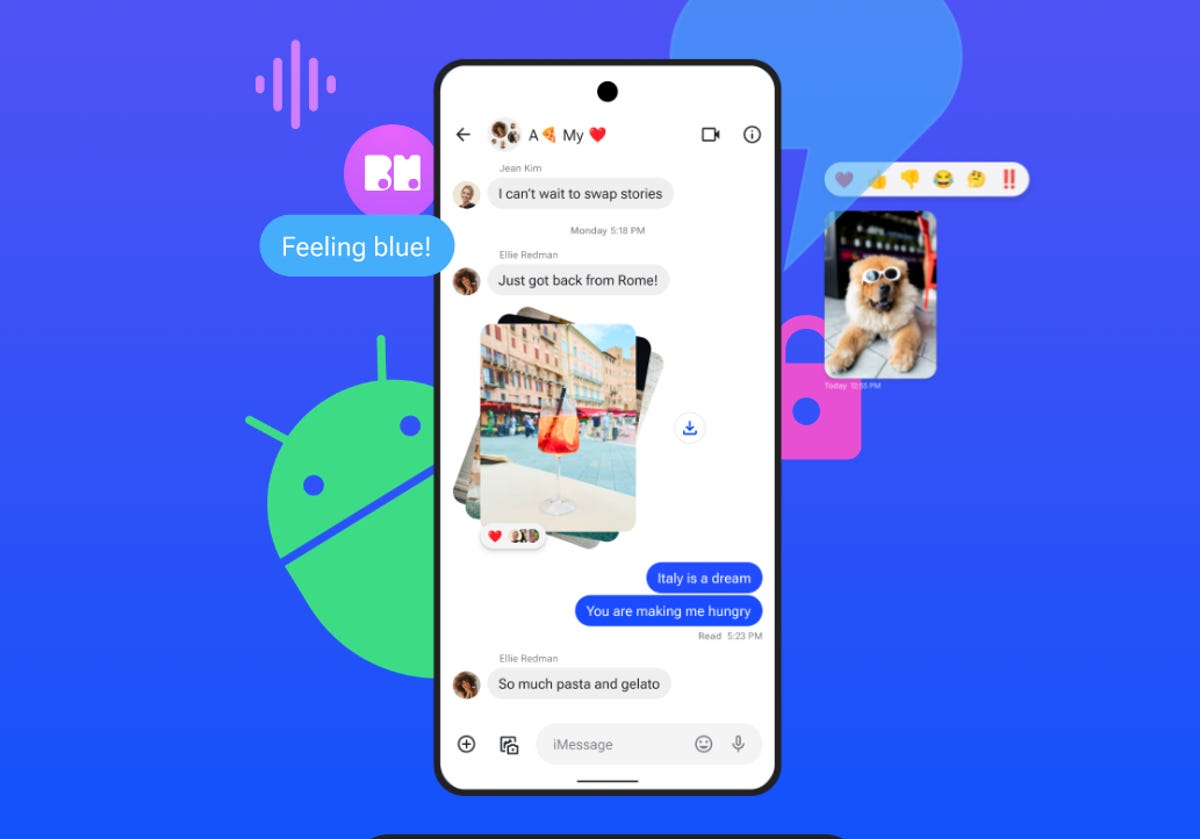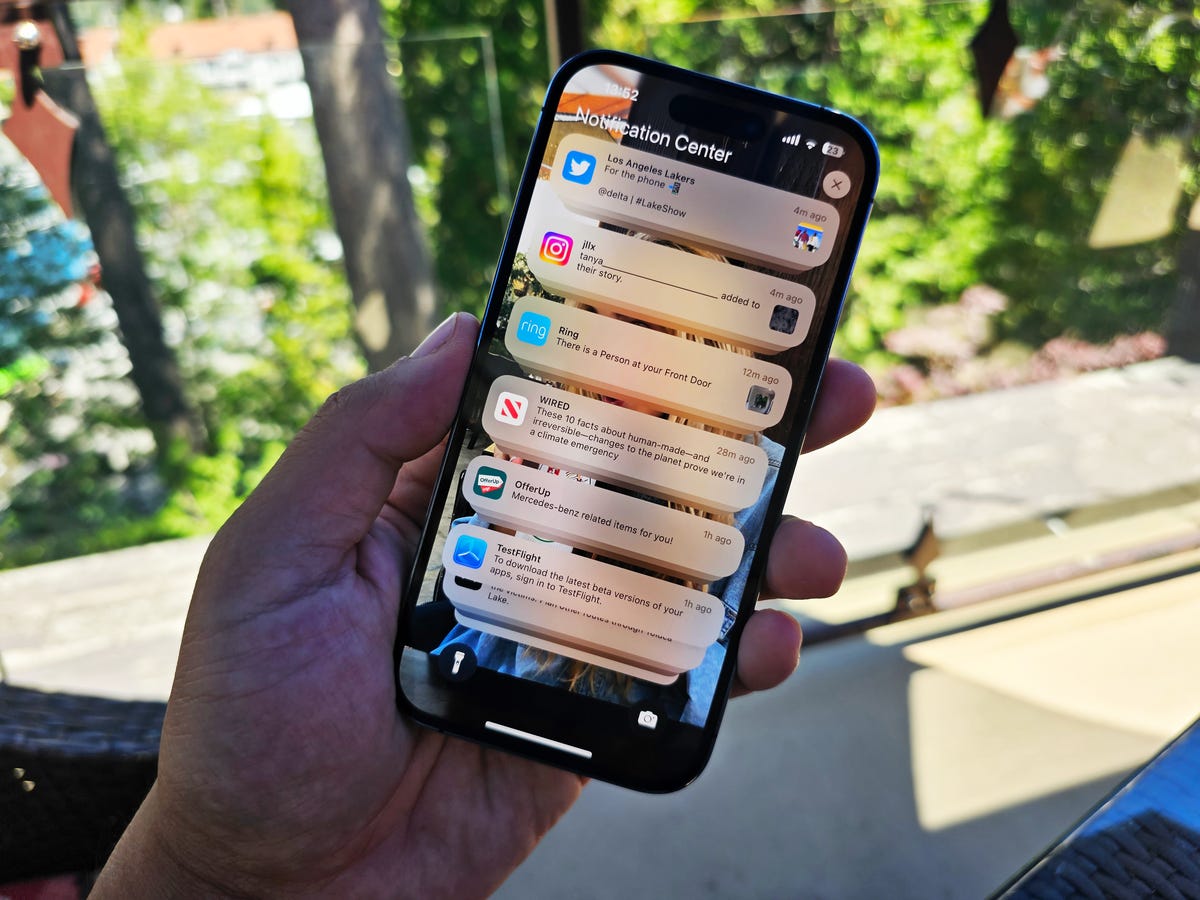Apple’s Messages app and iMessage texting service are among the targets of the US Department of Justice’s lawsuit filed Thursday. The DOJ and 16 state attorneys general claim that Apple is using its dominance in the US mobile industry to stifle competition.
Despite the fresh scrutiny on iMessage, Apple already announced plans to bring RCS — a much more modern messaging protocol with updated features — to the iPhone this year. Doing so represents a major step towards bridging the divide between Android and iOS when it comes to the cross-platform messaging experience since it would support features like typing indicators, higher quality media sharing and message encryption.
Read more: Best iPhone for 2024
But until Apple starts delivering these features, Apple’s Messages app remains a big target for both the US government and by other private companies like Beeper trying to make their own texting services compatible with iMessage.
Apple usually waits until it launches the next version of iOS in the fall to introduce new cross-compatible features. For instance, Apple added the ability to create web-based links for FaceTime calls with iOS 15, enabling Windows and Android users to join. That suggests we may not hear about Apple’s progress in bringing RCS to the iPhone until June, followed by a potential rollout in the fall.
But with all the mounting pressure, Apple can’t afford to wait.
Watch this: DOJ Sues Apple: Everything to Know About the Antitrust Suit
Government scrutiny is already pushing iOS open
Before Thursday’s lawsuit, the EU was already pressuring Apple to open up certain aspects of its iOS operating system.
To comply with the EU’s Digital Markets Act, Apple must allow for alternate app stores and digital payment methods on the iPhone. It also has to provide a prompt that informs users they can set a different default web browser besides Apple’s Safari. While these changes are EU-only, the regulations did lead to Apple switching to USB-C for all iPhone 15 models sold internationally.
Apple evaded these regulations on iMessage in the EU, possibly because third-party chat apps like WhatsApp have higher adoption internationally. But with additional scrutiny from the US government, Apple may have to provide greater transparency into how its messaging service operates and that it isn’t actively hindering competition.
By expediting RCS support, Apple could shift focus away from the currently limited texting experience between iPhone and Android and instead show how it’s working to change that.

Beeper tried to bring iMessage to Android but was shut out by Apple.
Beeper, Nothing and others keep trying to jump into iMessage
Apple should speed up its RCS adoption to circumvent external attempts to provide an “iMessage for Android.”
While both Beeper Mini and Nothing Chats made headlines for trying to bring iMessage access to Android, both relied on loopholes in Apple’s service. In some cases, you needed to entrust your Apple ID and password to a third party, which could potentially raise privacy concerns.
Other services like Blue Bubbles used an always-on Mac paired up with software to route iMessage texts to an Android device, but even these self-hosted options have their own security risks (along with the logistical issues like losing access if your Mac lost power).
Apple actively shut down Beeper’s access to iMessage last year, but services keep arriving to satisfy a desire among Android users who want to text their iPhone friends with modern features like typing indicators and better group chat support. By hurrying up on RCS, Apple could divert people from seeking out these services and deal with fewer security threats on its iMessage network in turn.

Apple does have some of its apps link to other services, like the Phone app.
Apple could borrow Beeper’s new plan to open up Messages
In addition to speeding up its RCS efforts, Apple could borrow Beeper’s strategy to make the Messages app a hub for other texting apps.
The new Beeper app, currently in beta, will be a center for non-Apple texting services. Texts from WhatsApp, Signal and even Slack would reportedly arrive into the one app and retain their encryption. I haven’t tested the Beeper beta yet, but was an active Trillian user that brought together the instant messaging apps I used as a teenager (AIM, MSN and Yahoo messengers).
Apple already does this to an extent. Apple’s Phone app displays calls from multiple services, so if you want to launch a video call with a WhatsApp friend, you can do so from the Recents list.
Apple would not have to display texts from other services within Messages. A simple Messages app notification would suffice, and an indicator that the conversation is on WhatsApp — which if you tap would move you to the appropriate app.
When we should actually expect RCS
As much as I would like to see RCS on the iPhone now, the reality is that Apple will likely stick to its traditional product timelines. We might see details and an early beta version of RCS at WWDC in June. If that is the case, a public launch would likely come this fall as part of iOS 18 and the heavily rumored iPhone 16 series.

